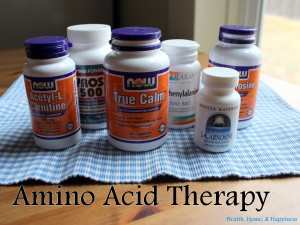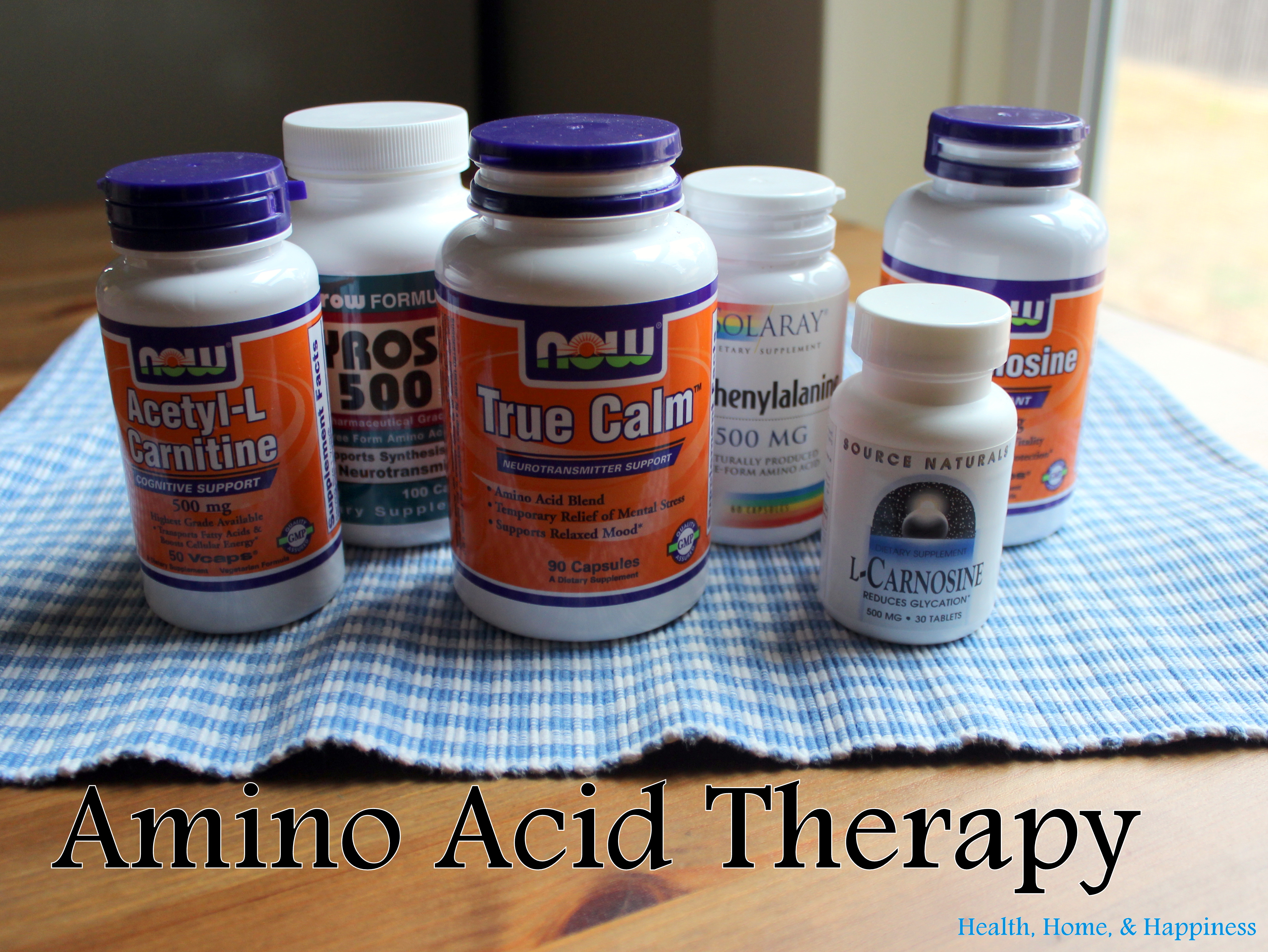
When starting a healing diet such as the GAPS Diet to get to the root of your health problems, sometimes you need a little help clearing brain fog, boosting your mood, or tempering the anxiety that seems to be snowballing out of control. For the person plagued by anxiety in normal living the thought of changing their diet becomes a much bigger deal than it would if they didn’t have anxiety.
For that reason, some supplementation can help to quickly correct deficiencies and stabilize the mood enough that making dietary and other lifestyle changes doesn’t seem to be as overwhelming.
** Disclaimer: Before stopping or starting any medication or supplement, changing your diet, or changing your exercise program, you need to be under the supervision of a qualified healthcare provider. I am not a qualified healthcare provider, and this is informational in nature and not intended to replace medical advice.
Can amino acids go through the blood brain barrier?
While some amino acids don’t go directly through the blood brain barrier on their own, they are transported by active transport, so they don’t end up crossing it directly, but rather they are pulled from the bloodstream as needed. (source)
Because there is only a limit amount that can transport at any time, when taking amino acids that do not directly cross the blood-brain barrier therapeutically, it’s best to consume them before protein-containing meals so that they don’t compete with other amino acids that you don’t have a deficiency in. I just take them an hour after a meal or 20 minutes before.
How can amino acids help with anxiety?
Amino acid therapy is helpful because it uses single amino acids that the body uses to specifically help correct deficiencies. It’s correcting and bringing the body back into balance, not like a drug that is inhibiting chemical reactions or numbing pain or emotions.
When the brain is dealing with emotional stress, such as a traumatic life event, certain amino acids are used more than usual. Those amino acids help the brain process the stress. (source)
When we don’t have enough of those specific amino acids available to us, the brain can get stuck in a cycle of feeling overly stressed and anxious because we do not have the nutrients needed to process little stresses, so they build up into bigger chronic stress and anxiety.
What amino acids help with anxiety?
GABA
GABA is depleted by stress, and studies have even shown that a mother’s stress levels can affect the infant’s behavior. (source)
GABA is thought to be useful for adults with general anxiety disorder. (source)
GABA can be found in supplement form here. It is found in combination with other calming supplements in True Calm.
Serotonin
Serotonin is found in supplement form of 5HTP. 5HTP is created in the body during the natural metabolic process, from protein in food. (source) It transfers across the blood brain barrier without a transport molecule and is used to treat a variety of symptoms in addition to anxiety: pain, sleep, chronic over eating, and sleep disturbance. (source)
5HTP is shown to help reduce night terrors in children. (source)
Serotonin in 5HTP form can be found here.
*Note: People on medications for bipolar disorder or on SSRIs (antidepressants) will want to check with their doctor prior to trying 5HTP due to possible drug interactions.
L-Carnosine
L-Carnosine is helpful especially for children on the spectrum for many different aspects of behaviors, cognition, and speech (study). Anecdotally, this helped my daughter a lot when we were first starting the GAPS diet, as her nutrition improved, and, I suspect as her gut healed and she was better able to use the nutrition from her food, we no longer were needing to supplement at all.
L-Carnosine can be found here.
*Note: This is often confused with l-carnotine, though they have similar names, they have different properties.
What are the precautions needed when taking an amino acid supplement?
Amino acids, like most supplements, have not been studied during pregnancy or breastfeeding. Because we know that stress affects the developing fetus, and there have not been any signs that amino acids are, in fact, harmful for the growing baby, I would opt to try supplementation rather than suffer from stress through the pregnancy. It is hopeful that once the initial imbalance has been corrected with supplements, the mother would be able to consume enough protein through diet to maintain needed levels of amino acids.
If you are not deficient in a particular amino acid, or if the form you are taking is not easily used, you may notice no difference. If you do not feel a difference after a 3-day trial using the supplement 3 times a day, I would consider stopping or trying another amino acid.
If you are on a healing diet, watch for fillers such as rice starch in the supplements.
Further reading:
The Anxiety-Gut Connection: It’s not in your head, it’s in your gut. How we can heal anxiety by balancing the gut flora.
Learn how to heal leaky gut

60-page ebook of all my best GAPS Diet (Gut and Psychology Syndrome) articles all in one place.



Would these be suitable for a 14 year old to take?
If so can you pls recommend any brands available in Australia?
Thanks
What does would be suitable for the above supplements for a 4 yr old child?
Especially L Carnosine and True Calm?
* Dose *
I used to just give her more when the effects wore off. For my daughter I started with 1 capsule (I put it in her juice) in the morning and went from there.